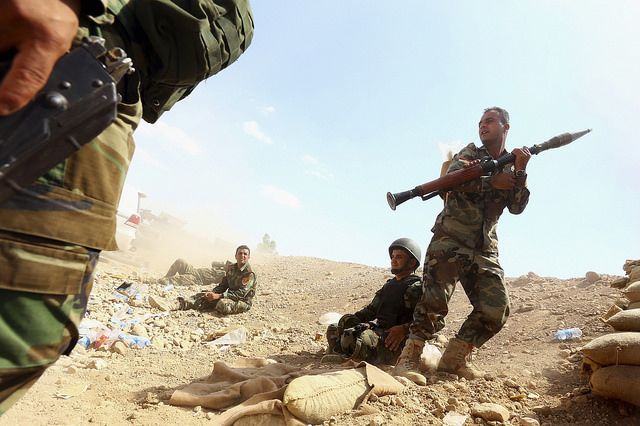If Danish soldiers take prisoners in Syria and Iraq, they could wind up in the Danish legal system, according to the government.
If, as is expected later this year, Danish soldiers are deployed in the fight against the Islamic State (IS) in Syria and Iraq, the terrorist organisation’s fighters could eventually wind up on Danish soil.
“In the case of Danish detention, it will depend on the specific situation whether the detained person will be released, extradited to another country or prosecuted in Denmark,” responded Peter Christensen, the defence minister, in an answer to Parliament reported by Radio24syv.
Not equipped
A broad parliamentary majority has voted to send about 60 commandos and seven fighter jets to the battle zones.
DF was among those that voted to send troops, but said that it did not want to see IS fighters on Danish soil.
“We cannot accept it as a part of the solution that prisoners should be prosecuted in Denmark,” DF defence spokesman Marie Krarup told Radio24syv.
“It simply makes no sense, and the Danish legal system was set up to handle this kind of thing.”
READ MORE: Denmark forsook Iraqi prisoners amid evidence of torture
Krarup said the prisoners should be extradited to other countries.
The government has always stressed it was not intended that Danish soldiers take prisoners in Syria and Iraq, and the Defence Ministry said that the possibility that any would be taken was “low”.















